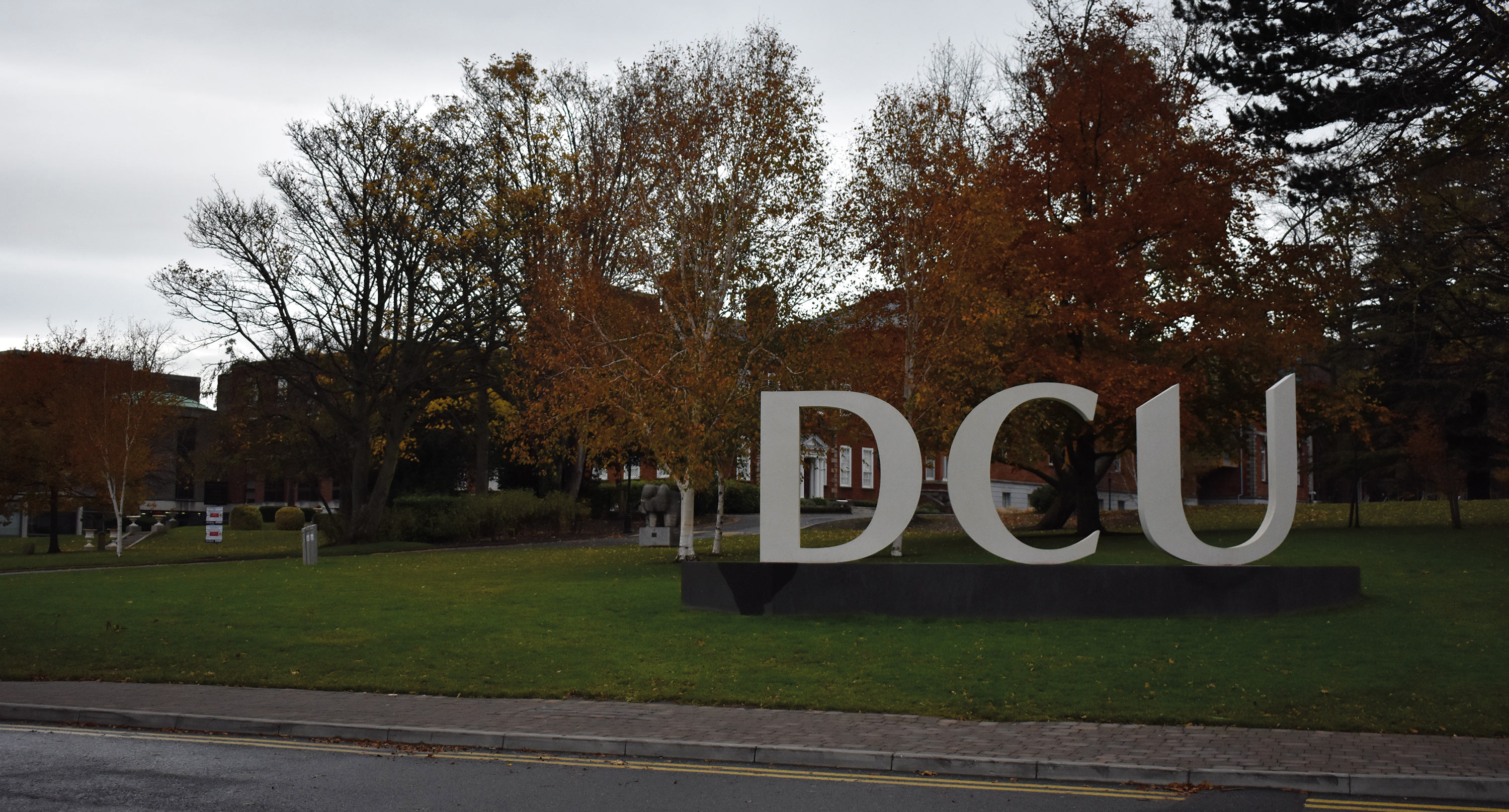
By Aishling Phelan
Aishling Phelan speaks to the President of DCU, Brian MacCraith about future tuition fees, how the recession has impacted on learning and how having a good degree is no longer enough in a changing world.
The biggest challenge facing Dublin City University this year will be delivering a high standard of education despite financial cuts acrossthe- board according to the President of DCU, Brian MacCraith.
DCU has taken a 15 per cent reduction in its budget while student numbers continue to increase.
CAO acceptances this year dropped nationally by 3000 but of the seven universities in Ireland, DCU is the only one to increase its acceptances.
Speaking to The College View the morning after he saw 12 DCU students, past and present, play a part in the All-Ireland winning Dublin football team, McCraith said, ‘‘I meet with senior management of the university every week, I hear from every unit in the university and no one’s in a good place in terms of funding and everyone’s trying to operate more efficiently.’’
CUTS
Financial cuts will result in less discretionary spending within DCU this year. ‘‘I’m not happy about the library, we can’t be as flexible with the library as we used to because of the lack of funds.’’
Last year students who were part of the DCU Access Service, which is aimed at widening access to students from ‘socio-economically disadvantaged backgrounds’, had their scholarship money cut. This year the service has taken on the increased number of 170 incoming access students up from 120 the previous year. There are a total of 500 Access students on campus.
Although the service has suffered severe cuts, MacCraith said, ‘‘The government support for it may be cut but ours certainly hasn’t. On average our access students do better than students coming in the traditional way.’’
He added, ‘‘The main challenges as for everyone else in education is funding, trying to deliver a quality education to students at a time when we’re getting cut not only in funding but staff as well.’’
The government imposed a six per cent cut on staff in universities over the past three years.
‘‘I get frustrated with the outside world sometimes in terms of the perception of academia but the academic staff and the non- academic staff are working so hard, they’re delivering every commitment we’ve initiated.’’
Last year while the total deficit in the university sector was €30million, DCU was the only college without a deficit. ‘‘It’s still the case this year and we intend to maintain this. You’ll find more and more there will be penalties from the government if you run into deficit.’’
FEES
When asked if tuition fees for students should return MacCraith said, ‘‘The issue for me is very simply, student numbers are going up, government investment is going down, that divergence between the two means that the quality will start to suffer. My view is that if the government won’t do it, and we continue to put pressure on the government to do it, my feeling is that those who can pay should pay.’’
MacCraith is open to the idea of a sensible and equitable loan system based both on people’s ability to pay and also the benefit they accrue from their degree.
‘‘Some way of developing systems which on the one hand does not discriminate against those that certainly can’t pay, we will certainly not damage our access programme here, we still need to make sure that those bright enough to be at university should be supported to do so. But those who can pay should.’’ MacCraith didn’t rule out another increase in the registration fee next year. Speaking about this year’s increase he said, ‘‘It’s a small change, I’m not sure how far that’s going to go, there’s some hints that it may even be bigger next year, but we don’t know yet. We would never want to see a situation where a student couldn’t come to college by virtue of this…we would rather a situation where it’s not just everyone getting hit.’’ MacCraith acknowledged that the recession has impacted on each students learning experience. ‘‘I attended last year a Students’ Union event which really affected me I have to say. It was called Let’s Talk and it was trying to get students to discuss the stresses they’re under. I was really, really affected by it. They had all written with invisible ink on pieces of paper on the wall things that were causing them problems and then for anonymity everyone stepped back and they shone ultraviolet light on the wall. Just when you heard called out some of the things students were dealing with it was incredible, so I realise that the student community is dealing with a whole range of issues that are personal, family, domestic and financial.’’
GRADUATES
He added that DCU was doing everything it could to best position graduates for when they leave university. His latest programme of initiatives ‘Generation 21’ is aimed at shaping graduates for life and work in the 21st century and defines six attributes graduates must have in order to compete and adapt to the changing needs of employers including being creative, enterprising and globally engaged. ‘‘The outside world is changing dramatically and we want to make sure we’re doing everything we can to prepare students. I spent a lot of time last year, when I wasn’t in DCU, out talking to employers, CEO’s of major companies, and they’re all saying the same thing that really your degrees are good at DCU but we’re looking for more.’’
According to figures from the CSO, more than 3,000 Irish people leave the country each month – the highest figure since the 1800s. The number of Irish people emigrating has more than doubled in the past two years with an average of 111 now leaving each day.
But MacCraith warns that moving abroad should not be regarded as something negative. ‘‘You’ve seen over the past two decades, an awful lot of the leaders in Irish society at the moment are people that have spent time abroad, they’ve expanded their knowledge, they’ve gone off, they’ve learnt, they’ve come back. There’s always an attraction to come back to Ireland because it’s such a fantastic place to live, even in recession people want to still live here.’’
Figures from the CSO support his argument. While record numbers are fleeing the recession in Ireland, it has been calculated that 42,300 moved here in the 12 months to April and almost half of them were Irish people returning home. Last Saturday, MacCraith returned from a four day trip to India where he is working at establishing links with two major institutions in Bangalore and Chennai, making it his fourth visit in 15 months.
‘‘In 15 years India will have the biggest population in the world, it will overtake China. If you look at the world’s population, 2 out of every 5 are either from India or China, the whole world economy is changing and we want our students to have an experience of that.’’
In the future MacCraith would like to develop systems where students here could do joint projects with students across the web in India and has a vision of creating a more online learning experience.
‘‘We’ve committed that by 2015 we’ll have 80 per cent of our programmes blended, a combination of online and face to face. Over the next three or four years you will see this change happening.’’
One of the first things MacCraith did when he took office was enhance the powers of the Students’ Union. His predecessor, Ferdinand von Prondzynski, criticised the Students’ Union for not influencing university policies enough during his ten year tenure.
MacCraith gave voting rights to the Students’ Union President on the University Executive and the Governing Authority among many others. Previously the SU held a non-voting position at the University Executive meetings.
Speaking to The College View on the day Education and Skills Minister Ruairi Quinn established the Student Grants Appeals Board, he praised the Minister for his passion and commitment to education. ‘‘ Because of the situation he’s in in his life he’s not going to go for reelection, he doesn’t have to worry about the issues other ministers have to worry about so he can actually focus on delivering something.’’
Mac Craith blames a combination of the points system, the Leaving Cert curriculum and assessment for the current Maths crisis. ‘‘Poor results have been reflected in the number of students taking some of our degree programmes. We could fill a lot more positions in our degree programmes if there was a better capability and more students taking higher level maths at second level.’’
He is critical of second level education and assessment stating, ‘‘Students come in from an atmosphere where they’re expected to passively assimilate knowledge and then regurgitate it. There’s nothing in the assessment system that rewards critical and independent thinking, gives time for reflection, innovation, none of those things are rewarded.’’




Leave a Reply